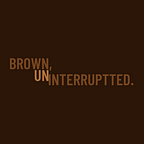Why it’s hard to feel for Ukraine
I walk out of customs from a Eurostar train from Paris, arriving at St Pancras International and I see a row of people dressed in uniform holding blue and yellow placards written in English and Ukranian “You are welcome”.
I should have “aww”-ed but I could only mutter a snigger under my breath. And I felt guilty.
Where were these for Afghans? Palestinians? Yemenis? Somalis? Tamils? Syrians? The list is endless.
It’s been a month since the war started and I’ve restrained myself from posting because I wasn’t sure if it was appropriate, if it was disrespectful.
Don’t get me wrong, I am with the people of Ukraine and I am devastated by what’s happening to them and I genuinely hope they get all the support they need to survive this.
But I’ve been walking around with a weird mix of relief for the people of Ukraine, a distaste for how they’re welcomed with open arms and a dull ache for the refugees and asylum seekers in war struck African, Asian and Middle-East countries.
I see politicians “shocked” by Putin’s atrocity and terror happening to a “white European” country — having committed the same atrocities for centuries in many parts of the world, exploiting their resources.
I see the media celebrating Ukranian civilians “resistance fighters” when I’ve spent my entire childhood listening to the media talk about “tamil terrorists” fighting against their government. Let’s not forget how they compare Palestinian terror with Israeli’s high tech “defence”.
I see reporters and celebrities shamelessly stating how they didn’t expect a well “civilised” country to be affected like this; how it’s not the same like you see in Africa and Asia. ha.
I see Ukranians discriminate against people of colour of trying to leave the country — even when every single person is fighting for their right to live, we see colour and not a human.
There have been many curated examples of the double standard in the news, in the media, in politics. But what hurts even more, is the everyday effort of people around me.
I see colleagues talking about dark days and wanting to fight the war. It’s not the first war since World War 2. It’s not the only country attacked by Russians. As Russia struck Ukraine, the US strikes Somalia.
I see the emails at work committing to relocate Ukrainian employees, asking people for fundraising ideas, sharing links to raise funds. I don’t remember this during the Palestine attacks, the Taliban takeover. I remember friends sharing posts and links but not at a scale that you see now — the solidarity with Ukraine is like none other.
I see Instagram stories resharing coverage of children losing their parents, parents separated from children, mothers giving birth in metro stations — like its new news, oh the shock and horror. Children have lived their lives bunker to bunker, parents have lost their children in attacks, families separated for years — it’s not new. It’s been happening for years. It’s not just Ukraine at this present moment. It’s also Yemen, Syria, Somalia and Afghanistan.
They just never get the coverage. If they do, they’re framed as “civil wars” — characteristic of uncivilised communities. It’s not an illegal invasion, its a fight against terror. seriously.
I see posts on LinkedIn asking people to provide jobs for Ukrainians who have left their countries, jobless, finding refuge in another. But it reminds of the fight for equity. It reminds me of all the scientists, doctors, teachers, engineers who needed to prove their qualifications to thrive but worked as cleaners, taxi drivers, care workers to survive and provide for their families.
I see the difference in how people sympathise with the Afghans, the Palestinians and the Syrians — pity vs an urgency to act. oh their government’s a mess vs how they empathise with an illegal invasion of Ukraine; not recognising the refugees from Africa, Middle East and Asia are all due to illegal invasion and occupation, fuelled and funded by the Western World.
I see the double standard. I see the bias.
My heart physically aches for the refugees and asylum seekers who are watching the world embrace the blonde and blue eyed refugees while they have struggled in camps, been treated like criminals, faced discrimination, denied opportunities, been threatened to go home — the homes destroyed by the same governments.
I’ve been privileged to never have been a refugee but I know my family has. I know their friends with kids my age grew up in camps, with trauma that they still live through today. My heart aches for them.
I know the refugees who fled their countries alone as teenagers, sleeping on streets, running from country to country in search of a better life at 16 — without adult support. My heart aches for them.
Are they not civilised to be treated like humans?
Are they not deserving of the same activism?
And ironically, I don’t think it’s all conscious, blatant racism. It’s lack of awareness, lack of proximity to issues. It’s systemic — beliefs shaped by narrow exposure to certain types of media, content, history and opinion. The more Western Media propagates a certain view, we follow the bandwagon. We are taught a certain perspective of history. And with social media, the algorithm feeds more of the type of content you consume, propagating one school of thought.
We inherently exist in a world that subconsciously believes in white supremacy and you see this manifest in subtle ways in the way people communicate, share opinion and as internalised racism in people of colour who distance themselves from their coloured identity and history.
Is it an excuse?
Can we break the curse?
Can we help them unlearn?
I hope so.
